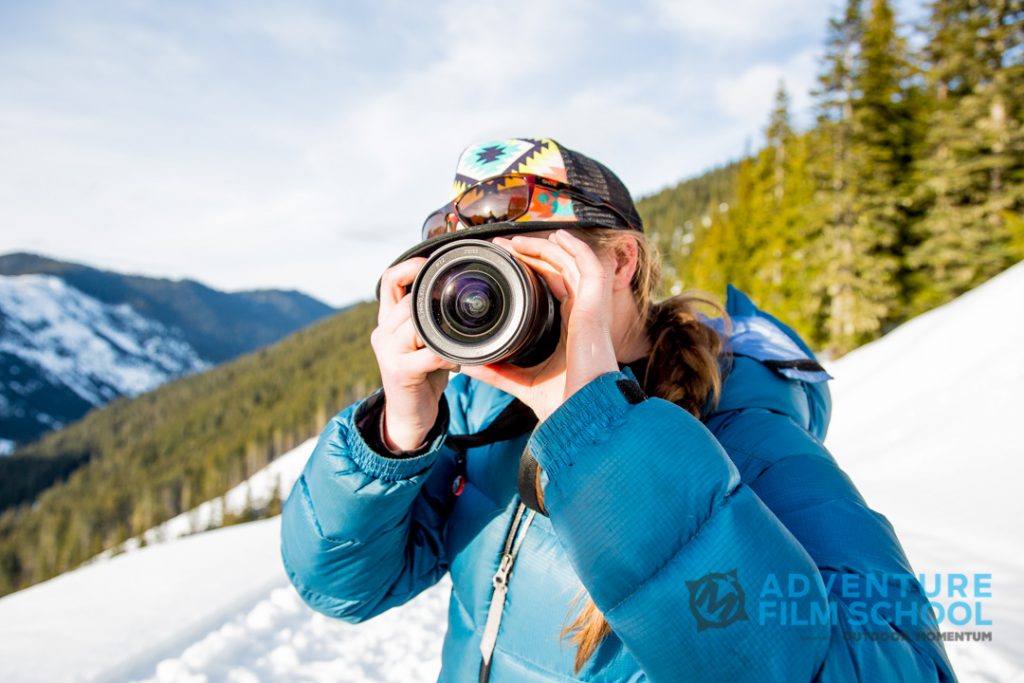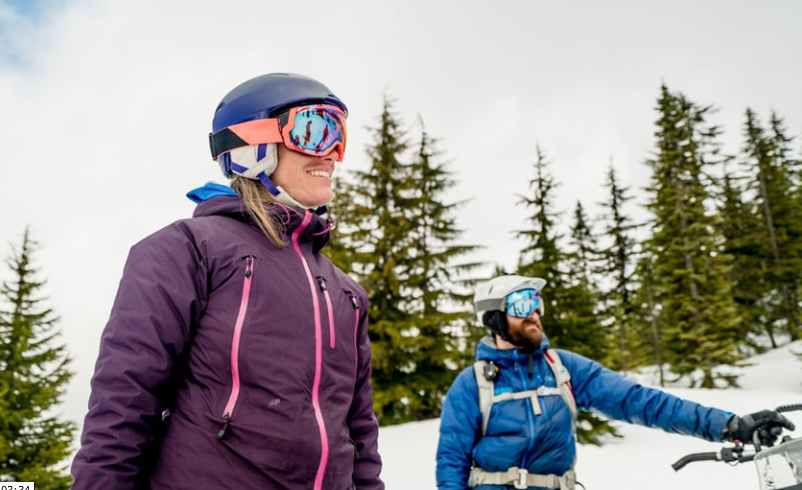
Adventure Film School’s Ski & Snowshoe Filmmaking Course offered Daniels the chance to indulge not only her athletic side (in addition to skiing, she enjoys mountain biking and rock climbing), but also her artistic side. She was excited to tap into her creativity, and was hoping that some of the more “daunting” technical aspects of filmmaking would be demystified during those four days stationed at a yurt deep in the Washington backcountry.
Daniels didn’t just get her wish, she came away from those four days so enamored with the experience that she followed it up by attending workshops at the GoPro Mountain Games in Vail and at Boulder’s Adventure Film Fest. She also came away with her very first film, a short documentary featuring ski guide Aaron Mainer of Cascade Powder Guides. “I was happy with the final product, just to have something tangible at the end of it,” she recalls. But of course, the experience didn’t mark any sort of “end” to her foray into filmmaking – it was just the beginning.
Inspired by her Adventure Film School experience, Daniels launched her own production company, Bristlecone Studios (“Bristlecones are some of the world’s oldest trees and they thrive in harsh environments,” she says of its name). She devotes evenings and weekends to this passion project, hoping to capture compelling stories from within her community, like that of Summit Sisters, an experiential skill-building weekend that also serves as fundraiser for school-age girls to attend backpacking and climbing trips run by Women’s Wilderness.
Her desire to help local people and organizations shine doesn’t mean Daniels is just focused on Colorado, though – her next big project will send the filmmaker up to British Columbia, where she’ll follow the story of a backcountry entrepreneur of sorts while also documenting the area’s world-renowned hut culture.
We had the opportunity to chat with Daniels about her Adventure Film School experience and some of the takeaways – here’s what she had to say.

What was your favorite part of the Adventure Film School experience?
I think the amount of information that they were able to pack into four days was really impressive. I barely knew how to use my camera, and they taught everything from exposure to how to set up three-point lighting, how to set up for an interview, and camera movement. We developed our stories in that time, so the pre-production, production, and post-production all fit into four days, which was impressive.
What was the biggest lesson you learned during the course?
You have to get out of your comfort zone to learn and do new things, which takes being okay with failing. Failing is the fastest way to learn and improve. Focus on the small wins and just keep at it. As part of my process to embrace failure, I started a series called “rough cut weekends” where I would challenge myself to make a film over the weekend with whatever adventure I was already going on, with the equipment I had. This allowed me more freedom to experiment and not overthink the final product, but rather just enjoy the process of creating.
Why should other people consider taking an Adventure Film School course?
It’s such a valuable experience to dive all-in, kind of get your feet wet, and learn it all at once with other people who are in the same boat. It’s a great way to make connections and to get started on seeing what is involved in all angles of [filmmaking]. I think so often it can be overwhelming when you’re starting something to know where to focus, and it can just be a lot of research on your own, so being in a classroom environment is nice because it just kind of expedites all of that and gives you a taste of what you need to learn more about later.
What is your favorite piece of filmmaking equipment or must-have item when you’re out in the field?
I’m very much a minimalist – I have a very bare bones kit just because I’m usually a team of one. So, honestly, having a really good backpack to carry everything for whatever outdoor adventure I’m on is huge. I have a camera-specific Peak Designs pack that I love for travel and around town. When I’m in the backcountry I have a more modular system where I have a form-fitting camera case and a separate case for my sound equipment, and I’ll throw it in whatever pack I am taking, whether it be my climbing pack, backcountry skiing pack or lighter weight day pack.
What is your advice to others who want to pursue filmmaking, whether as a hobby or career?
I would tell them to find out what’s going on outside their own back door, in their own community. Don’t be afraid to start where you are with the resources and time that you have.
View Jennifer’s work on Vimeo
Follow Jennifer on Instagram
